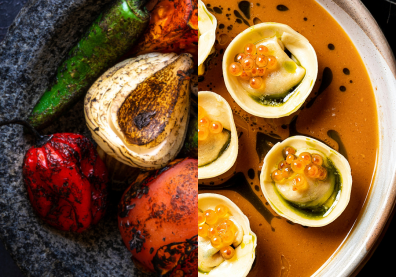ICHD - The heritage of gastronomy

The "Intangible Cultural Heritage" (ICH) defined by UNESCO in October 2003 recorded eating habits and culinary practices for the first time in 2010. France was the first to register its "gastronomic meal", followed by other countries such as Japan, Greece, Italy, Kenya, Senegal and, more recently, Peru and Lebanon. To date, 18 countries and 5 regions have had their culinary and food heritage registered with UNESCO's ICH.
The process of making culinary practices part of our heritage is a recent one. In 2010, "the gastronomic meal of the French" was the first food practice to be registered as UNESCO's intangible cultural heritage subsequently opening the door to the registration of other practices, both culinary and food. On the other hand, this patrimonialization process is not insignificant. On the one hand, it enables practices to be protected and frozen in time, in a context where cultural specificities tend to be crushed by the imposing force of globalization. Culinary and food practices are among the elements that enable communities, peoples and nations to fight for the survival of their cultural heritage. On the other hand, this process of patrimonialization also generates conflicts of interest, sometimes tensions, or leads to the invention of "traditions" to enable certain groups to gain a certain legitimacy in a context of competition for patrimonialization. In this round table, which follows on from the UNESCO presentation, our speakers will explore, through specific cases, these different themes around the process of heritageization of culinary and food practices, their issues, problems and outcomes.
Moderation: Bruno Laurioux, historian and director of IEHCA (Institut Européen d'Histoire et des Cultures de l'Alimentation).
Interventions:
- Loïc Bienassis, historian and project manager at the IEHCA
- Mercedes Ahumada, chef at the restaurant Chicahualco
- Thomas Mouzard, anthropologist and project manager for the Patrimoine Culturel Immatériel at the French Ministry of Culture